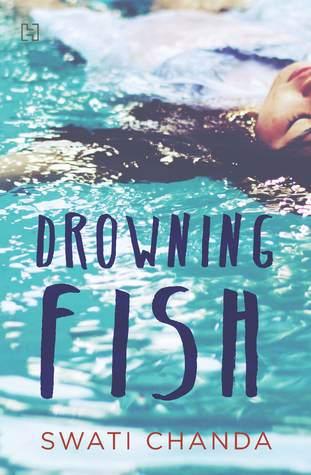 Goodreads blurb: ‘And what of those whose roots are planted deep in the soil of their land? What does it take for them to thrive, transplanted?‘
Goodreads blurb: ‘And what of those whose roots are planted deep in the soil of their land? What does it take for them to thrive, transplanted?‘
East Pakistan, 1950. Nayantara flees riot-ridden Narayanbari with her two daughters, leaving behind her life as she knew it. The only link to her past is the legacy she is determined to leave her granddaughter, Neelanjana – the precious pieces of teakwood furniture that oppress the rooms of her tiny flat in Calcutta, where she arrives to take refuge.
Decades later, Neelanjana leaves for the US, in a bid to forge an independent life. But, she discovers, as she is gradually bruised by alienation and heartbreak in a country far from her own, that the burden of her family’s history is one she cannot slough off easily, that rejection and violence can stretch across geographies and generations, and that ‘home’ is simply the place where one finally learns to accept oneself.
Compelling and deeply affecting, Drowning Fish is about lives trapped in the tumult of motivations and desires, and forged inescapably by events beyond their control.
==============
When I read and reviewed the book The Colonel who would not repent by Salil Tripathi [Link to my review], it opened up my eyes to an entire generation of Bengalis who were displaced from their homeland East Bengal or East Pakistan as it was then known due to the sectarian and communal violence that occurred as part of the war for the liberation of Bangladesh.
This book, Drowning Fish by Swati Chandra (an absolutely apt title, if I may say so at the beginning of the review itself) uses this violence as one of the backdrops against which this story of three generations of a Bengali family, and more specifically three women from the family, is set in. Nayantara’s story begins with her having to leave behind her life as it existed then. From being the head of a family which was wealthy, respected and endowed with all the goodness that life had to offer, she finds herself first in Agartala and then in Kolkata as a refugee, a nobody, a non-entity and a burden that even her own brother hesitates to support financially, emotionally or otherwise. Her only possessions, the only vestiges from her past that she can call her own are a few pieces of carefully crafted wooden furniture which she cherishes quite a bit.
This entire sequence of events forces a reasonably troubled teenage on her elder daughter Sucharita who is first forced to stay with her uncle and aunt which in the long run ends up being quite detrimental to her future in more ways than one. The recurring theme of Nayantara and her ‘rootlessness’ seem to be echoed in Sucharita’s life as well.
The narrator, if I may call her that, Neelanjana, Nayantara’s granddaughter and Sucharita’s niece drives the story forward with her incessant curiosity about her grandmother’s life in East Bengal and her aunt’s teenage years. Their stories are told by virtue of their answers to Neelanjana’s questions and they propel the narrative forward. They also serve the purpose of putting Neelanjana’s current life-situation in perspective. While her life is very different from that of her grandmother’s or aunt’s, in terms of the fact that she has successfully made her way to the United States to pursue her PhD and is well positioned to make a career as a teacher there, the fact remains that at various levels her life also mirrors that of her grandmother’s and aunt’s to a large extent.
What is it that Neelanjana struggles with, and what happens to her dreams forms the rest of the story. Suffice to say that the story will move you at various levels, and it truly is the chronicle of ‘drowning fish’ in more ways than one.
Click here to purchase the book from Flipkart [Link] or Amazon [Link].
===============
Disclaimer: A review copy of this book was offered to me by the publishers in return for a honest and unbiased review.
